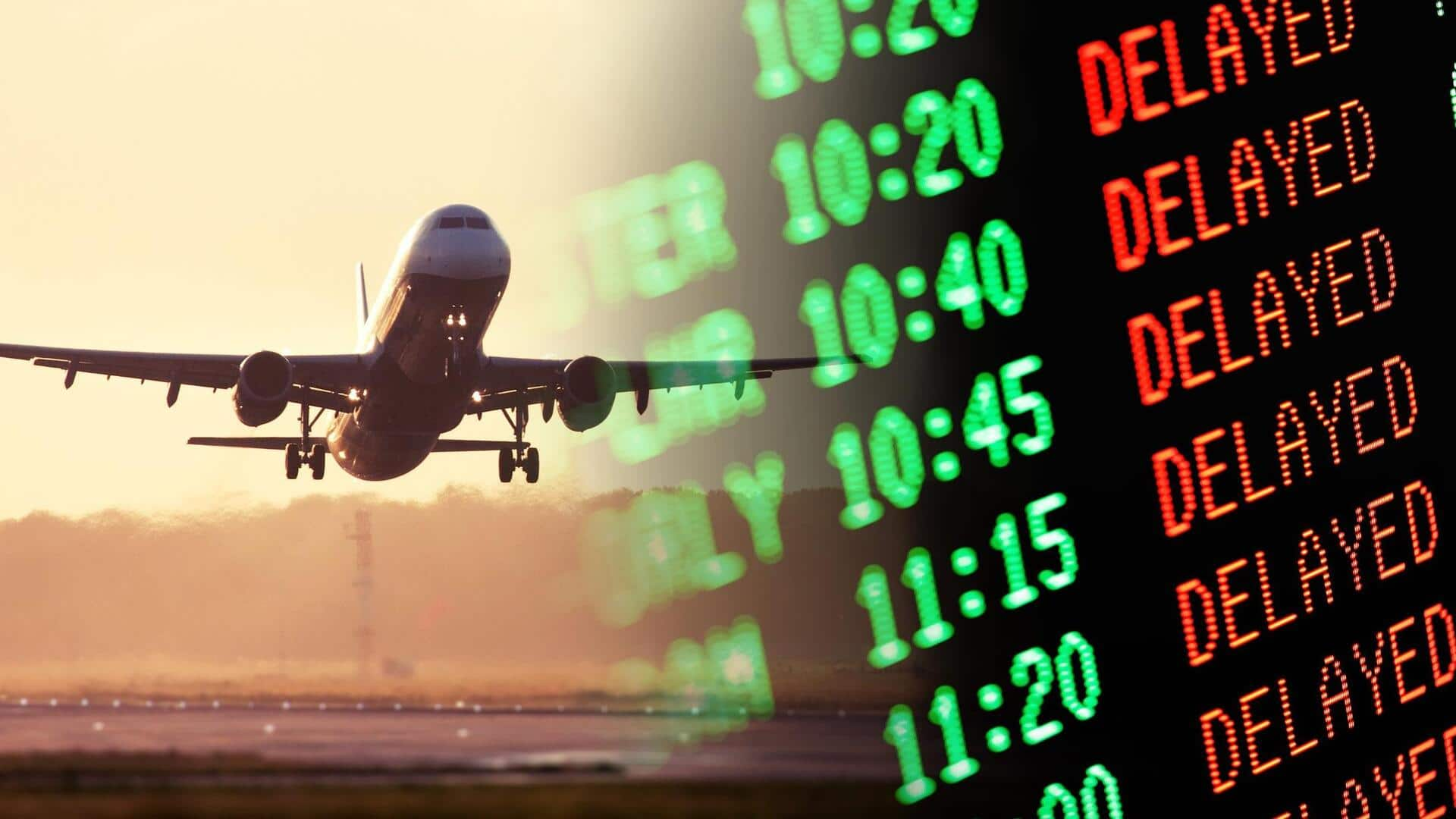
Flight canceled or delayed? Know your rights as a passenger
What's the story
Foggy weather in Delhi-NCR has caused significant disruptions at Indira Gandhi International Airport, with over 100 flights affected or delayed.
In a recent event, an IndiGo flight passenger physically assaulted the pilot while he was making an announcement about delays. A video of the assault went viral on social media platforms.
As flight delays become a common occurrence during winter in various parts of India, let's explore the options available to passengers in the event of delays or cancellations.
Details
Rules for flight delays
As per DGCA, if a flight is two-and-a-half hours long and delayed by two hours, refreshments should be provided.
For flights between two-and-a-half to five hours, passengers are entitled to refreshments after a three-hour delay.
Moreover, any flight delayed by four hours or more must offer meals to affected passengers.
In cases where a flight is delayed more than six hours, airlines must notify passengers 24 hours before departure, allowing them to seek a full refund or an alternative flight.
What Next?
Refunds and accommodations for long delays
Additionally, if a flight is delayed for over six hours and scheduled to depart between 8pm and 3am, or if the delay exceeds 24 hours, passengers must be provided with free accommodation.
In the event of flight cancellations, airlines must inform passengers less than two weeks but at least 24 hours before the scheduled departure time.
Passengers can then request a seat on an alternate flight or seek a full refund.
Insights
Rules for flight cancellations and compensation
If an airline fails to inform passengers at least 24 hours prior to a cancellation, they must pay compensation ranging from Rs. 5,000 to Rs. 10,000, based on the flight duration.
The same rule applies if a passenger misses a connecting flight booked on the same ticket number because of the cancellation of the first flight.
Insights
Refunds are not applicable in these cases
Airlines are not obligated to compensate passengers for cancellations and delays arising from extraordinary events.
These events include natural disasters, civil wars, political instability, security risks, strikes, labor disputes, and meteorological conditions.
Furthermore, situations beyond the airline's control, such as Air Traffic Control (ATC) issues or disruptions due to work slowdowns, also do not qualify for compensation.